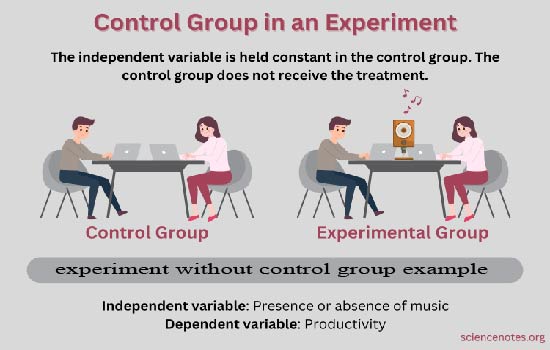It allows for comparisons between treatment groups while accounting for potential confounding variables and assessing effect size accurately. Without this essential component, conclusions drawn from studies may be less reliable and more prone to bias – something no researcher wants when striving for valid scientific discovery!

Critics argue that such extreme conditions
may have led participants to behave differently than they would under normal circumstances. Some argue that due to its artificial nature within a controlled setting, it may not accurately reflect real-life scenarios or human behavior outside those specific conditions.
It is clear that control groups play an integral role in ensuring accurate results in scientific research. They provide a basis for comparison and help eliminate confounding variables that could skew outcomes. Scientists must adhere to rigorous standards when designing experiments to include appropriate control groups whenever possible.
While there may be instances where including a traditional control group is not feasible or ethical, alternative designs such as using historical controls or randomizing participants into multiple treatment arms can help address some limitations associated with experiments without controls.
By not having a control group as a basis for comparison
Researchers cannot adequately the sleep experiment account for these external influences. Moreover, ethical concerns arise when conducting experiments without including a control group. It is ethically imperative to ensure participant safety by using proper controls and comparing interventions against established standards or placebos where necessary.
Running an experiment without incorporating a control group introduces various flaws and biases that hinder accurate interpretation of results. To obtain reliable findings with minimal bias and maximum confidence levels requires diligent inclusion of appropriate controls throughout experimental design.
Alternatives to control groups in experimental design
One alternative approach is the use of historical controls. Instead of a separate group being assigned as the control, data from past studies or existing databases are utilized for comparison purposes. This can be useful when studying rare diseases or conditions that make it difficult to recruit participants for a traditional control group.
Historical data may not accurately represent current circumstances, within-subject designs require careful consideration of order effects, and statistical techniques rely on assumptions that may not always hold true.
while including a control group remains
Standard in experimental design for its ability to account for extraneous factors and establish causality definitively(!), there are instances where alternate approaches prove beneficial(!!). Researchers must carefully consider their specific research question(s) (!)and weigh ethical considerations when deciding on appropriate study designs(!!!).
Impact of not having a control group on research and results Without proper controls, it becomes unclear whether similar results would occur under different circumstances or with different populations. This limits our ability to apply these findings beyond specific study conditions.
Conclusion: importance of including a control group in experiments for accurate and reliable findings
While there may be instances where including a traditional control group is impractical or unethical, alternative methods such as historical controls or within-subject designs can still provide useful comparisons when used appropriately. These approaches aim to address some limitations associated with experiments lacking conventional control groups while still allowing for meaningful analysis.
Including a well-designed control group in experiments is vital for ensuring accurate and reliable findings. It helps reduce biases and confounding variables while providing valuable comparisons against which experimental interventions can be evaluated. Incorporating appropriate controls strengthens research validity and enhances our understanding of cause-and-effect relationships in various fields of study. So remember: when conducting experiments, don’t underestimate the power of having a control group more

Leave a Reply